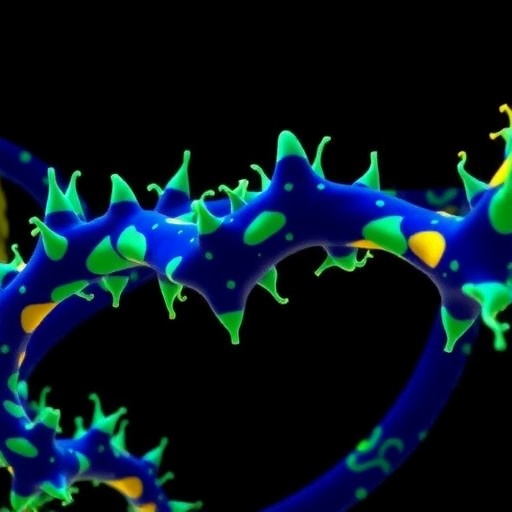In a significant development for the treatment of hypophosphatasia (HPP), groundbreaking research has emerged detailing the effectiveness of Asfotase Alfa—a recombinant form of tissue-nonspecific alkaline phosphatase—ten years after its approval. This study, authored by Khan, A.A., Rush, E.T., Wakeford, C., and others, compiles critical insights from both clinical research and real-world evidence, providing a comprehensive overview of Asfotase Alfa’s impact on patient outcomes in the long term. The extensive exploration of these findings contributes to a deeper understanding of how this treatment can alter the standard care landscape for patients suffering from HPP, a rare genetic disorder characterized by defective mineralization of bones and teeth due to low levels of alkaline phosphatase.
Hypophosphatasia is a disorder that presents in varying degrees of severity, with symptoms ranging from mild dental issues to crippling skeletal deformities and life-threatening complications. The approval of Asfotase Alfa marked a pivotal moment for HPP treatment, as it was touted as the first disease-modifying therapy available for individuals with this condition. The recent analysis, which spans a decade of data collection and patient outcomes, sheds light on the significant improvements in quality of life and health metrics that have been observed among those receiving this enzyme replacement therapy.
The study provides a detailed assessment of how Asfotase Alfa not only alleviates symptoms but also fundamentally alters the disease trajectory in patients. Researchers utilized longitudinal patient records and various clinical trial data to emphasize the therapy’s effectiveness across diverse patient demographics. From pediatric cases to adults, the findings reveal a consistently favorable response, underscoring Asfotase Alfa’s crucial role in comprehensive patient management.
Furthermore, the interplay between clinical evidence and real-world applications is a key highlight of this study. By integrating data from various sources, including patient-reported outcomes and treatment efficacy in everyday clinical settings, the research establishes a broader narrative of how Asfotase Alfa fits into the therapeutic regime for HPP. The findings support a model where clinical guidelines can be adapted based on patient experiences, leading to personalized treatment plans that enhance therapeutic outcomes and patient satisfaction.
One of the most striking aspects of this research is the documented reduction in skeletal complications associated with HPP following treatment with Asfotase Alfa. Many patients experienced increased bone mineral density and decreased incidence of fractures, which not only improves overall health but also contributes to enhanced mobility and quality of life. The effects observed in this analysis echo the voices of patients who reported significant lifestyle improvements, allowing them to partake more actively in societal roles often hindered by their condition pre-treatment.
Asfotase Alfa also demonstrates an impressive safety profile, corroborated by the decade-long experience reported in this extensive review. Adverse reactions have been minimal and manageable, reinforcing confidence in this treatment’s long-term administration. Researchers have noted an innovative tracking system for monitoring the safety of patients within the therapy framework, suggesting a robust approach to ensuring patient safety while optimizing treatment efficacy.
In this evolving landscape of HPP management, the central theme of this research underscores the importance of ongoing evaluation and adaptation of treatment protocols. With a decade of data at hand, the study advocates for continuous research efforts to further refine and enhance patient care strategies, moving towards a more evidence-based practice model within the field.
The implications of this study extend beyond pharmacological advancements; they advocate for a shift toward a more holistic understanding of rare diseases. By emphasizing real-world evidence and patient-centered care, the researchers highlight the necessity for healthcare providers to consider the full spectrum of a patient’s experience with HPP, including psychological, social, and economic factors that can affect health outcomes.
As the medical community celebrates the ten-year milestone of Asfotase Alfa’s approval, it is vital to recognize that this journey reflects the dedication of researchers, healthcare providers, and patients alike. Their collective contributions and shared experiences have laid the groundwork for future advancements in the treatment of hypophosphatasia, and potentially other rare diseases, paving the way for innovative therapies that address the complex needs of patients globally.
Looking ahead, this study serves as a clarion call for both ongoing research and collaborative efforts involving stakeholders across healthcare, academia, and patient advocacy. By working together, there is an opportunity to further illuminate the pathways to successful outcomes for rare disease management, ensuring that patients receive not only the best therapeutic options but also the most compassionate care.
In summary, the findings presented by Khan and colleagues provide a crucial understanding of Asfotase Alfa’s long-term effectiveness in treating HPP. The compiled evidence from clinical insights and real-world experiences speaks volumes about the potential for this therapy to improve lives profoundly. It not only represents a triumph in medical research but also lays the foundation for a future where patients with rare diseases receive the advanced care they rightfully deserve.
Through meticulous analysis and collaboration, the journey of Asfotase Alfa exemplifies the continuous quest for better therapeutic solutions, echoing the mantra that with persistent inquiry and heartfelt commitment, significant strides can be made in overcoming the challenges presented by rare conditions such as hypophosphatasia.
Subject of Research: Effectiveness of Asfotase Alfa in hypophosphatasia
Article Title: Key Learnings from Clinical Research and Real-World Evidence on Asfotase Alfa Effectiveness in Hypophosphatasia: 10 Years Post-Approval
Article References: Khan, A.A., Rush, E.T., Wakeford, C. et al. Key Learnings from Clinical Research and Real-World Evidence on Asfotase Alfa Effectiveness in Hypophosphatasia: 10 Years Post-Approval. Adv Ther 42, 4270–4299 (2025). https://doi.org/10.1007/s12325-025-03309-1
Image Credits: AI Generated
DOI: https://doi.org/10.1007/s12325-025-03309-1
Keywords: Hypophosphatasia, Asfotase Alfa, clinical research, real-world evidence, patient outcomes, rare diseases, effectiveness, long-term therapy, bone health, enzyme replacement therapy.




